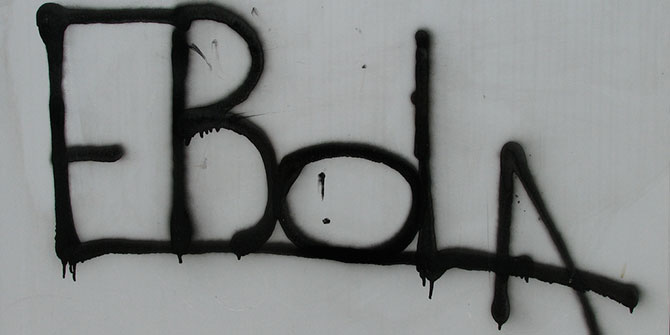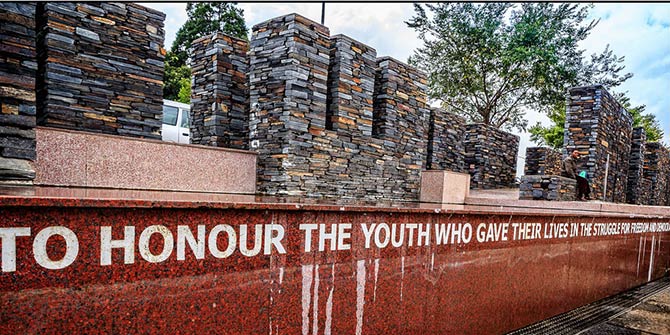John Mwangi Githigaro says this book is a must-read for scholars interested in environmental politics and the politics of natural resources governance in Africa.
This book broadens existing scholarly debates on the political economy of Democratic Republic of Congo’s natural resources. The book is timely in helping to unravel the changing trends in resource governance post-2001. The book demonstrates the inherent paradoxes in the Congo; In the midst of ‘plenty’, poverty, conflict and poor governance exist side by side. These paradoxes are examined in light of their implications on state-building and governance in the Congo. It is written by a seasoned Congo expert.
This book analyzes the present and the future potentials of Congo’s natural resources in contributing to the country’s development (p.10). In advancing its central argument, the book delves into Congo key resources of forests, water, farming, mining, and oil. It explores the potentials of this resource-rich country for her own development while providing sufficient estimates for her natural resources endowment
The book additionally engages the debates on the natural resource governance in the Congo in order to provide linkages with overall state building and development. The book argues that Congo’s development and her attendant state-building efforts will not take place in an environment marked by poor resource governance. The book further emphasizes the value of prudent natural resource management as the panacea for unlocking the potentials of Congo’s abundant natural resources.
In drawing attention to the theme of governance and its implication for unlocking Congo’s natural resources, the book engages in a stakeholder analysis of actors involved directly or indirectly in natural resources extraction. Congolese state officials, farmers, miners, international institutions, western multinationals, including illegal networks such as those operating from neighboring Rwanda and Congo are examined. By exploring these stakeholders’, the book demonstrates how the actions and the inactions of these state and non-state actors have implications on natural resource governance. The study thus draws connections between power, politics, and resource governance in the DRC. The book contends that state weaknesses and the attendant elite capture of natural resources rent that is further complicating Congo’s resource paradox (pp.151-152).

In conclusion, the book offers a way forward for resource governance in the Congo (pp.152- 153). It calls for improved governance although with caution that the state would be ‘un-willing or able to reform its natural resource management to any significant extent’ (p.152). Additionally, competing actors with multiple claims and interests could have relied as part of the desired change.
One of the key strengths of the book is its analysis of the political economy of Congo and its linkages to natural resource governance. The book goes beyond a simplistic analysis of state failure in explaining the resource paradox in Congo but delves deep into the connections between the state, the local, the global and the region. Taking this wide perspective helps the writer to advance the argument that indeed the country’s natural resources hold the potential for development if prudent governance is to be instituted. These viewpoints are sustained by sound evidence to support the thesis of the work.
The other strength of the work lies in its balanced assessment of the challenges that Congo needs to overcome for sustainable development to occur. The book while arguing that the natural resource governance is uncertain owing to complexities of the actors involved provides a number of practical interventions that could unlock its potential. While not the sole remedy for Congo, improved governance in natural resource management is proffered as one of the options, yet this is hardly enough (pp.152-153).
While the book delves into the potentials of Congo’s natural resources, the writer remains rather pessimistic on the potential that Congo’s governance structures could overcome its challenges (p.152). The writer contends that even in the case of a regime change and a democratic agenda to match, natural resource management would still be handicapped. This perspective while valid from the complexities of the actors involved in resource extraction is limiting. It is limiting given that it denies the possibilities of prudent natural resources governance that could occur in the future.
This book provides a rich and detailed account of the challenges and constraints hampering Congo’s development amidst abundant natural resources. This book is a must-read for scholars interested in environmental politics and the politics of natural resources governance in Africa and beyond. It is a timely read as it explains the complexity of ongoing resource governance challenges in the Congo.
Congo’s Environmental Paradox: Potential and Predation in a Land of Plenty. Theodore Trefon. Zed Books. 2016.
John Mwangi Githigaro is PhD candidate in the Department of International Relations, United States International University (USIU-A), Nairobi, Kenya.
The views expressed in this post are those of the authors and in no way reflect those of the Africa at LSE blog or the London School of Economics and Political Science.






1 Comments